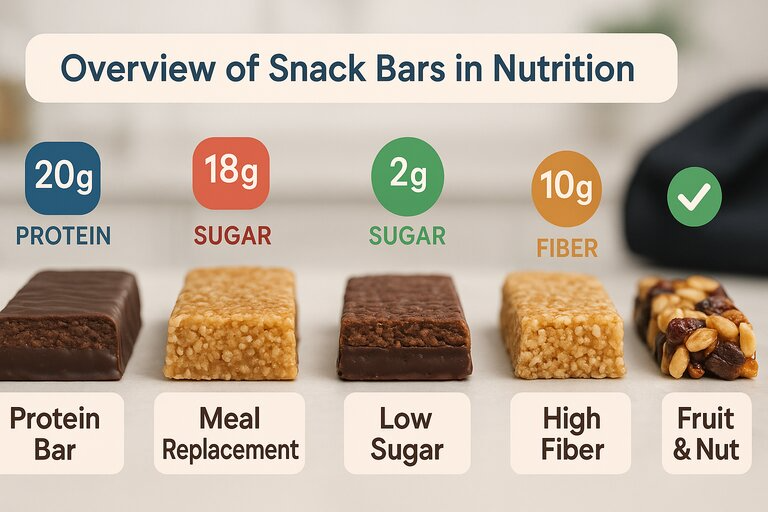Did you know that a mindset in wellness can significantly influence not only your physical health but also your mental and emotional wellbeing?
Understanding the role of mindset is crucial for achieving overall wellness and maintaining it over time. In this article, we delve into the importance of mindset, explore the fixed versus growth mindset dynamic, and provide effective strategies for cultivating a positive wellness mindset.
“Your mindset is the filter through which you experience life. Change the filter, and your entire reality can shift—even your health.”
— Dr. Mark Hyman , functional medicine doctor and bestselling author
Dr. Hyman emphasizes the link between mindset and physical health outcomes, a connection that’s backed by emerging research in psychoneuroimmunology.
By shifting your internal lens—from stress to possibility, from scarcity to self-care—you can influence not just mood, but inflammation, immune function, and energy. Mindset is medicine.
Understanding Mindset in Wellness
Defining Mindset and Its Importance
Mindset refers to the underlying beliefs and attitudes that shape how we perceive and approach various situations. It encompasses our thoughts about our abilities and potential.
When it comes to wellness , having a proactive and positive mindset can set the foundation for health-promoting behaviors and resilience during challenging times.
It’s essential to recognize how our mindset influences our decision-making, leading to either progression towards wellness or stagnation.
The Connection Between Mindset and Wellness
Research indicates a profound connection between mindset in wellness and overall health outcomes. Individuals with a growth mindset tend to embrace challenges and view failures as opportunities for growth, while those with a fixed mindset might avoid challenges out of fear of failure.
This fundamental difference can significantly affect one's ability to achieve and maintain wellness. For instance, when faced with obstacles, a growth-minded individual is more likely to adapt their approach and stay committed to their wellness goals.
For more insights on how mindset can influence health, explore our article on Mindset and Weight Loss: A New Approach to Wellness .

“Wellness is not a ‘medical fix’ but a way of living—a lifestyle sensitive and responsive to all the dimensions of body, mind, and spirit.”
— Greg Anderson , wellness advocate and author
This quote reframes wellness as a holistic journey rather than a quick solution.
It highlights that lasting health starts with a proactive mindset—choosing daily habits, thoughts, and intentions that nourish the whole self.
In other words, mindset is not just part of wellness; it's the operating system that drives it.
The Impact of Fixed vs. Growth Mindset on Wellness
Characteristics of a Fixed Mindset
People with a fixed mindset often believe that their abilities, intelligence, and potential are static and unchangeable.
This perspective can hinder their progress towards wellness , as they may view challenges as insurmountable barriers rather than opportunities for personal development.
A fixed mindset can lead to feelings of frustration and discouragement, particularly when faced with setbacks in health or wellness journeys.
Benefits of a Growth Mindset
On the other hand, a growth mindset empowers individuals to believe in their capacity for change and improvement. Those embracing this mindset understand that effort and persistence can lead to results.
This perspective fosters resilience, allowing individuals to bounce back from setbacks and challenges.
They are likely to engage in regular reflection on their health journey, making adjustments as necessary to align their actions with their wellness goals.

“If you believe you can’t heal, you won’t. The body follows the mind. That’s the first step in any wellness journey.”
— Gabrielle Bernstein , spiritual wellness coach and author of The Universe Has Your Back
Bernstein’s insight reminds us that belief is a prerequisite for transformation. Whether someone is recovering from burnout or building new habits, they must first believe change is possible.
The mindset of hope or defeat directly impacts motivation, consistency, and ultimately success in any wellness program.
Strategies to Cultivate a Wellness Mindset
Setting Realistic Expectations
One of the foundational strategies to cultivate a mindset in wellness is setting realistic expectations. Instead of aiming for perfection, individuals should design plans based on achievable goals.
Accepting that some days will be better than others can help manage expectations and minimize feelings of frustration.
Practicing Resilience in Daily Life
Developing resilience involves recognizing that setbacks are a part of life. It's essential to practice bouncing back and adopting a mindset that views challenges as opportunities for growth.
By responding to failures with curiosity rather than criticism, individuals can foster a healthier relationship with their wellness journey.
Making Small, Sustainable Changes
Instead of pursuing drastic changes that can be overwhelming, focusing on small, sustainable changes can lead to lasting impacts on wellness.
These incremental adjustments are manageable, and over time, they contribute to significant improvements in health and wellbeing.
For those interested in enhancing their wellness journey, consider exploring the benefits of Infrared Sauna Blanket Benefits as a path to health and longevity.

Expert Insights on Mindset in Wellness
Quotes from Wellness Experts
“Like a muscle, your mindset grows stronger the more you train it—through intentional habits, self-awareness, and repetition.”
— Dr. Joe Dispenza , neuroscientist and author of Breaking the Habit of Being Yourself
Dr. Dispenza’s work bridges neuroscience and behavior change, emphasizing that our thoughts physically reshape the brain through neuroplasticity.
This quote reflects that process: when you practice gratitude, resilience, or self-compassion consistently, you’re literally strengthening mental “muscles” that support lasting wellness. It’s not magic—it’s brain science in action.
Real-Life Applications of Mindset Strategies
Practicing mindset strategies in real-life scenarios can lead to remarkable transformations. For instance, viewing challenges as opportunities rather than threats can shift one’s perspective significantly.
Real-life applications, such as engaging with supportive communities or employing positive affirmations, reinforce the fundamental principles of a growth-oriented mindset.

Common Misconceptions About Mindset in Wellness
Debunking Myths Surrounding Mindset
Many misconceptions surround the concept of mindset in wellness. One prevalent myth is that having a positive mindset alone is enough to ensure wellness without accompanying action. While a positive mindset is crucial, it must be paired with intentional actions to manifest effective wellness changes.
Clarifying the Role of Mindset in Health
Another misconception is that sad or negative thoughts automatically equate to a fixed mindset. In reality, everyone experiences fluctuations in their mindset.
The key is to recognize and reframe negative thoughts constructively. Acknowledging that setbacks don’t define one’s entire journey is essential for maintaining a healthy mindset.

“What we think, we become. The mind is everything.”
— Buddha
This foundational teaching in Eastern wellness philosophy underlines the power of thought in shaping our reality.
In health and wellness, this translates to believing in your capacity to change—whether that means healing, adopting a new habit, or facing a challenge. A positive mindset can literally influence physical outcomes.
Key Takeaways on Mindset in Wellness
Summarizing the Importance of Mindset
In conclusion, developing a mindset in wellness is crucial for achieving lasting health and well-being. A positive, growth-oriented mindset fosters resilience and encourages sustainable lifestyle changes.
By understanding the value of mindset and implementing effective strategies, individuals can significantly improve their wellness journey.
Encouraging Continuous Growth and Learning
Embracing the mindset of continuous growth and learning allows individuals to evolve positively. Remember, every small step counts and contributes to overall progress. By nurturing a wellness mindset, we set ourselves on a path toward not just surviving but thriving.
FAQs About Mindset and Wellness
What is the mindset of wellbeing?
The mindset of wellbeing encompasses the attitudes and beliefs that individuals hold regarding their health. It includes a proactive approach to maintaining physical and mental health through positive thinking, resilience, and the willingness to adapt.
Is wellness a mindset?
Wellness is certainly influenced by mindset. A positive mindset facilitates healthy behaviors and increases the likelihood of achieving wellness goals. Therefore, cultivating a wellness mindset is fundamental.
What is mindset in health?
Mindset in health refers to one’s beliefs and attitudes toward health and wellness. It shapes how individuals approach their health decisions and challenges, significantly affecting their overall wellbeing.
How can mindset affect people's mental wellness?
Mindset plays a vital role in mental wellness by influencing emotional responses, resilience to stress, and overall life satisfaction. A positive mindset can enhance mental wellbeing, while a negative mindset may contribute to feelings of failure and distress.
Conclusion: Embracing a Wellness Mindset
In summary, embracing a positive and growth-oriented mindset in wellness can lead to transformative changes in health outcomes. By continuously nurturing this mindset, individuals can overcome obstacles and remain committed to their wellness journey.
Call to Action: Embrace the Power of Your Mindset
Every small shift in your thinking can lead to a big change in how you feel, move, and live.
Whether you're starting fresh or getting back on track, now is the perfect time to refocus your mindset and prioritize your wellness.
Take a deep breath, set one clear intention today, and let that be your first step toward lasting change.
 Add Row
Add Row  Add
Add 





 Add Row
Add Row  Add
Add
Write A Comment